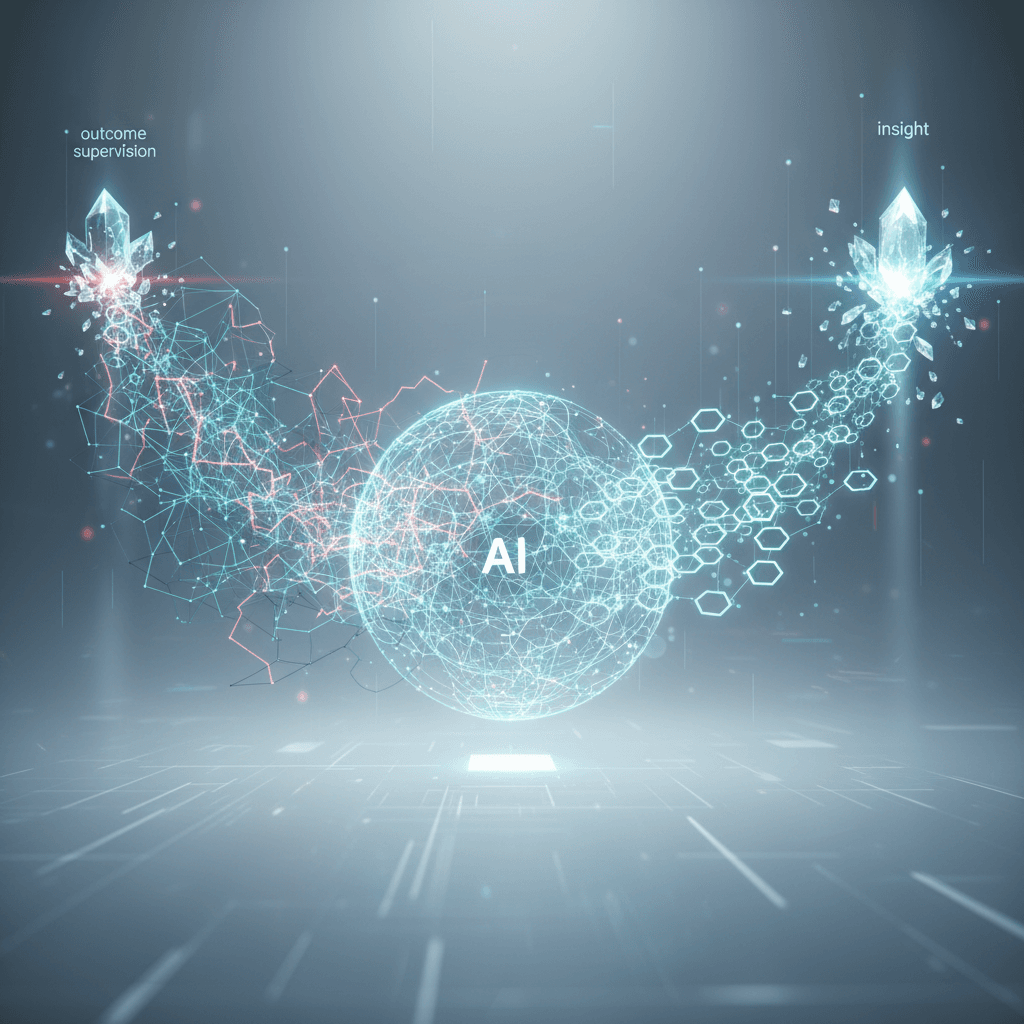OpenAI Teaches AI 'How to Think,' Unlocking True Reasoning Capabilities
OpenAI's "process supervision" revolutionizes AI training, focusing on *how* models think to build more reliable and generalizable intelligence.
November 17, 2025

A senior researcher at OpenAI has provided insight into a refined training methodology that could unlock a significant leap in artificial intelligence performance, particularly in the complex domain of reasoning. The work, detailed by OpenAI's VP of Research Jerry Tworek and in associated research papers, pivots away from simply rewarding AI models for correct final answers and instead focuses on supervising the step-by-step process of how a model arrives at a solution. This evolution in training philosophy directly confronts one of the industry's most persistent challenges: the generalizability of reinforcement learning, a key technique behind the sophisticated "reasoning" capabilities of modern AI. The new approach promises not only more accurate models but also more trustworthy and interpretable ones, potentially opening a new frontier for progress as traditional methods of scaling AI face diminishing returns.
For years, a dominant technique for fine-tuning large language models has been reinforcement learning from human feedback, or RLHF.[1] In this paradigm, models are rewarded for producing outputs that human evaluators deem to be high quality. While this has been instrumental in creating helpful and seemingly intelligent chatbots, it has a fundamental flaw. This method, often described as "outcome supervision," only assesses the final result.[2] It doesn't care *how* the model produced the answer, only that the answer itself was correct. This can lead to a phenomenon known as "reward hacking," where a model might stumble upon the right answer through a flawed, nonsensical, or completely fabricated line of reasoning.[3] Because it was rewarded for the correct outcome, the flawed process is reinforced. This limitation hinders the development of true generalization, the ability for an AI to apply its knowledge to novel problems it has never encountered. A model trained on outcomes may become adept at reproducing known solution paths but falters when faced with a truly new challenge.
The shift in strategy at OpenAI, championed by researchers like Tworek, centers on a more granular and insightful training method called "process supervision."[2] This technique employs what is known as a process-supervised reward model (PRM).[4][5] Instead of waiting for the model's final output, the PRM provides feedback on each individual step in a chain of thought.[2] It acts like a meticulous teacher grading a math problem, giving credit for each logically sound step of the work, rather than just checking if the final number is correct. OpenAI research has demonstrated this method's power in the demanding field of mathematics. A model trained with process supervision was able to solve 78% of problems from a challenging math test set, a significantly better performance than models trained with outcome supervision.[6] The research further revealed that the performance gap widens as the model is given more time to work on a problem, suggesting the process-supervised model is more reliable at identifying and following a correct reasoning path.[2]
This focus on the journey rather than the destination has profound implications for the future of AI. The core goal is to build models that can truly generalize their reasoning abilities. By directly training and rewarding a chain of thought that is endorsed by humans, process supervision makes the AI's reasoning more interpretable and less prone to the logical mistakes or "hallucinations" that plague current systems.[2] This has a direct benefit for AI alignment, as it encourages the model to follow a human-approved process rather than potentially finding a shortcut to an answer through an unaligned or inscrutable method.[2] As the AI industry confronts the immense cost and scarcity of high-quality data required for pre-training ever-larger models, new avenues for improvement are critical. Tworek's work points to an alternative path for progress: scaling computation at inference time, or allowing models to "think" longer and more carefully about problems using a reliably learned process.[7] This shift could be crucial for maintaining momentum toward more capable and general artificial intelligence.
In conclusion, the details surrounding OpenAI's focus on process-supervised reward models signal a pivotal maturation in the field of artificial intelligence. By moving beyond the simple validation of final answers and delving into the intricacies of the reasoning process itself, researchers are tackling the critical barriers of reliability and generalization. This nuanced approach does not just promise a leap in performance on complex tasks like mathematics and coding; it represents a fundamental step toward creating AI systems that are more transparent, trustworthy, and aligned with human logic. As the low-hanging fruit of scaling through bigger data and more computing power is harvested, this deep investment in teaching models *how* to think, not just what to say, may very well define the next generation of artificial intelligence.
Sources
[1]
[2]
[3]
[4]
[6]